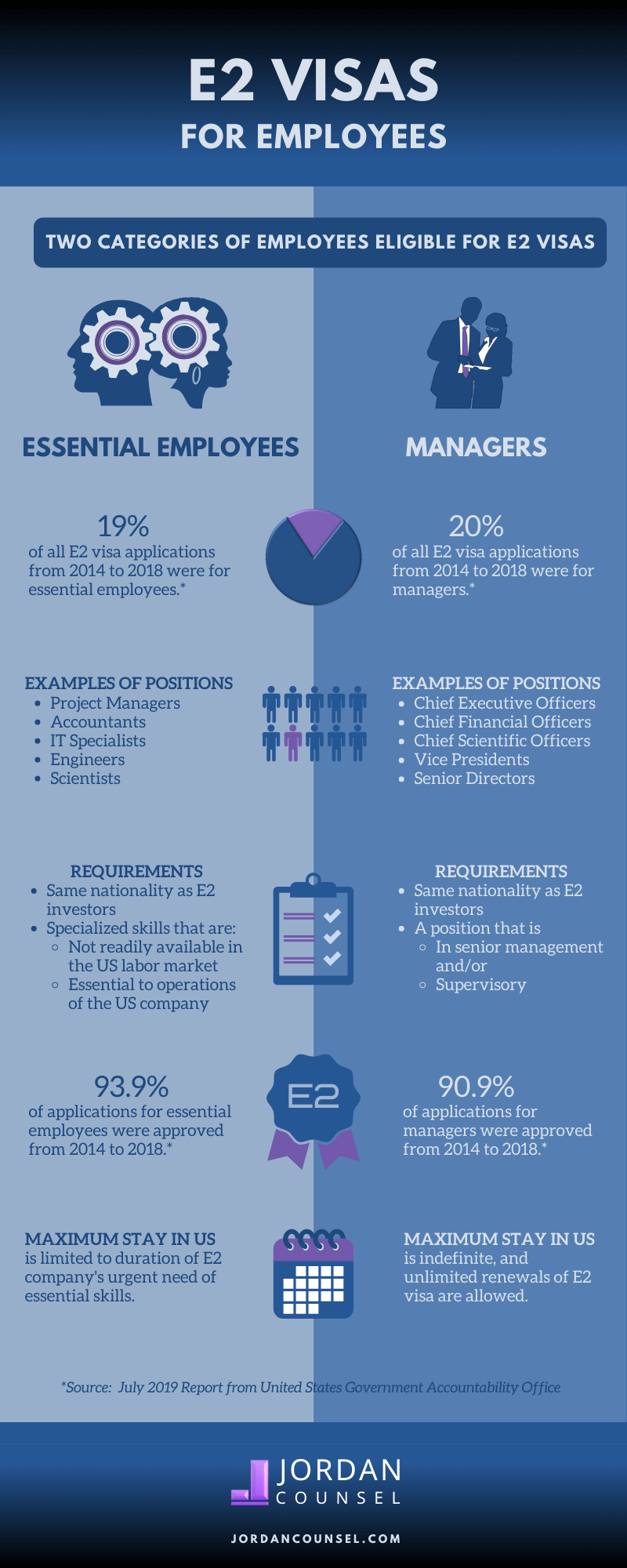E2 visas are intended to promote investment in the US economy. Companies seeking E2 status are therefore strongly encouraged to “hire American.” Nevertheless, every company that receives E2 status is authorized to hire employees who have the same nationality as that company’s owners.
While the ability to hire employees of a shared nationality is quite valuable for E2 companies, not all employees are eligible for an E2 visa. As described in the infographic below, only two types of employees can receive the E2 visa:
- Essential employees (who have specialized knowledge)
- Managers (e.g., supervisors and executives).
In that context, there are three particular scenarios where E2 employee visas can be shrewdly used to fulfill organizational growth strategies:
- US businesses with an overseas parent company (in a country that has an E2 treaty with the US). Overseas parent companies can use E2 visas to quickly transfer employees to their US subsidiary. While L1 visas are also used to expatriate employees to the US, E2 visas have a few advantages:
- The application process for L1 visas can be long, often taking 7 months. By contrast, E2 visa applications for employees are often processed in 7 weeks.
- Unlike L1 employees, E2 employees can be new hires.
- Unlike L1 visas, E2 visas can be renewed indefinitely.
- Partnerships can also benefit from E2 visas. This is especially the case when one partner is a passive investor. For example, let’s imagine a partnership between Anton and Barbara, who have the same nationality. Anton, the passive investor, will provide all of the company’s capital. Barbara will manage the company. In this scenario Barbara can apply for an E2 employee visa to manage the company in the US. It will not be necessary for Anton to also receive an E2 visa. And there’s no need for an overseas company.
- Family-run businesses frequently rely on E2 visas. In those families, children of E2 visa holders are only eligible for derivative E2 visas until age 21. With the derivative E2 visa the child can live and study in the US but does not have work authorization. Nevertheless, children with specialized knowledge of their family business (or who can qualify as a manager in that company) may be eligible for an E2 employee visa.
In summary, E2 visas can be strategically used to satisfy a number of staffing requirements. To learn more about the application process, read our E2 visa FAQs or contact us.




